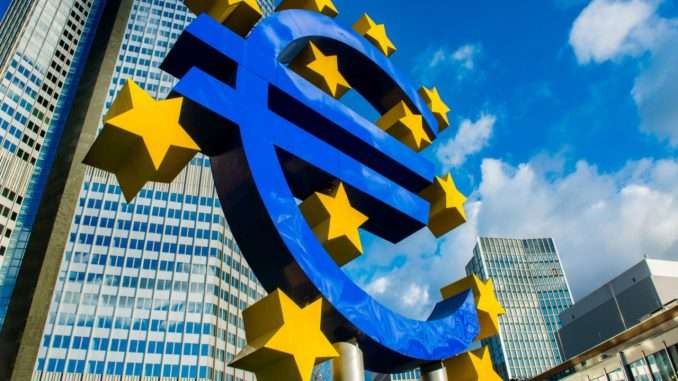
A gaggle of economists evaluating the potential results of a digital euro have insisted that proscribing entry to the upcoming forex is important to protect the present monetary system. Their research follows an earlier proposal to restrict digital euro deposits on the European Central Bank (ECB) to €3,000 per individual.
Limited Availability of Digital Euro Expected to Prevent It From Becoming Too Popular
Europeans’ entry to a digital euro ought to be restricted to stop a flight of capital from deposits at business banks, in accordance to a report printed by the European Central Bank. The paper has been produced by a crew of consultants led by Frank Smets who heads the regulator’s Directorate General Economics.
The economists have tried to predict the affect of a central financial institution digital forex (CBDC) on Europe’s banking sector. In the absence of empirical knowledge, they’ve taken under consideration public reactions to information about ECB’s plans to subject a digital model of the widespread European forex.
As a part of their research, which was printed by the financial authority on Thursday, the authors conclude that the optimum quantity of digital euros in circulation ought to be between 15% and 45% of the eurozone’s quarterly actual gross home product (actual GDP), its economic system’s inflation-adjusted output.
The calculation comes after a earlier suggestion that central financial institution digital forex accounts ought to be capped at €3,000 per individual ($3,070 at present alternate charges). That restrict, proposed by ECB Board Member Fabio Panetta to guarantee there’s sufficient fiat cash to help lending, sits roughly in the midst of the vary, at 34%.
If the European CBDC is to be issued with out limiting its amount, the quantity of digital forex in circulation can be a lot bigger, doubtlessly reaching 65% of the quarterly actual GDP within the euro space. That would lead, the researchers say, to extra sizable results on banks’ valuations and lending.
The ECB economists have partially primarily based their evaluation on public statements by European officers concerning the design of the digital euro. In June, Panetta mentioned that sustaining the entire digital euro holdings between €1 and €1.5 trillion would assist keep away from potential adverse results on Europe’s monetary system and financial coverage.
He additionally famous that this whole can be comparable with the present holdings of banknotes in circulation. With the inhabitants of the eurozone nations presently standing at round 340 million, this might permit holdings of between 3,000 and 4,000 digital euro per capita.
In mid-July, the ECB official and the financial institution’s President Christine Lagarde remarked in an article that the investigation section of the CBDC mission will take at the very least one other 12 months, but in addition marked some key ideas in its realization that they contemplate already clear.
Wide acceptance, ease of use, low prices, excessive transaction speeds, safety, and client safety are the attributes that customers would admire, the 2 bankers mentioned, promising the digital euro might be a extra environment friendly cost device than cryptocurrency.
Do you count on the ECB to restrict the digital euro in circulation? Share your ideas on the topic within the feedback part under.
Image Credits: Shutterstock, Pixabay, Wiki Commons, Yavuz Meyveci
